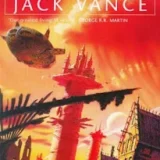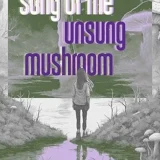 This homage to Frederik Pohl is by no means a reflection on the author’s complete body of work enjoyed by his fans over the years. It just can’t be done in this small of a space. This is but a tiny glimpse at the work of a man many of us looked up to. It is his first publication – his first of many.
This homage to Frederik Pohl is by no means a reflection on the author’s complete body of work enjoyed by his fans over the years. It just can’t be done in this small of a space. This is but a tiny glimpse at the work of a man many of us looked up to. It is his first publication – his first of many.
I never claimed to be an aficionado of poetry, and this post may prove why. But sometimes, on those rare sad occasions when real life intertwines emotionally with works of fiction, we might absorb new literary connotations we never noticed before as a means to establish closure.
At the ripe ol’ age of fifteen, Frederik Pohl composed the poem Elegy to a Dead Satellite: Luna. A year later under the pen name Elton V. Andrews, the submission was accepted by editor Thomas O’Conor Sloane PH.D. of Amazing Stories Magazine for the October 1937 issue. Later publications of the following poem also appeared with the revised name of Elegy to a Dead Planet: Luna.
Elegy to a Dead Satellite: Luna
Darkness descends and the cluttering towers
Of cities and hamlets blink into light.
The harsh, brilliant glitter of day’s bustling hours
Gives place to the glowing effulgence of night.
The Moon, that pale creature, the queen of the sky,
Peeps wistfully down at the life forms below,
Thinking, perhaps, of the eons rolled by
Since life on her bosom lapsed under the snow.
A dead world and cold, this satellite bleak,
Whose craters and valleys are airless and dry.
No flicker of motion from deep pit to peak,
No living thing’s ego to shout, “I am I!”
But once, ages past, this grim tomb in space
Owned living things on its surface now bare
Till grim Time in his flight, speeding apace,
Swept life, motion, thought away, who can know where?
The title of Elegy to a Dead Satellite: Luna gives the reader an obvious sense of remorse with a vivid look back at the vibrant past of a lunar civilization from long ago. The blissful memory “Of cities and hamlets blink into light” seems eulogistic in nature. Yet, “Till grim Time in his flight, speeding apace, Swept life, motion, thought away, who can know where?” brings the reader back down to the melancholy of loss.
Sure the lifeless Moon is the subject of this poem with its “glowing effulgence” as the “queen of the sky,” but the speaker’s compassion appears to be more focused on the “life forms below.” Just like the moon, the speaker “Peeps wistfully down” at them. Even though the Moon is the one that is “dead” and “cold,” the emotional voice continues to expel from the human element and the selfishness of “I am I.”
In my opinion, the difference between elegy and eulogy is the same as selfishness and selflessness. One looks at the subject figuratively with personal loss while the other is more literal in tribute.
Given the recent passing of Frederik Pohl, readers might once again blur the emotional stance between elegy and eulogy. Sure we can eulogize the author by returning to his vast bibliography of work and spend countless hours paying tribute to his storied career. But like the poem Elegy to a Dead Satellite: Luna, many members of fandom will elegize the loss Pohl. We are a selfish lot, we members of this fandom. And that is why we will miss his words greatly.








